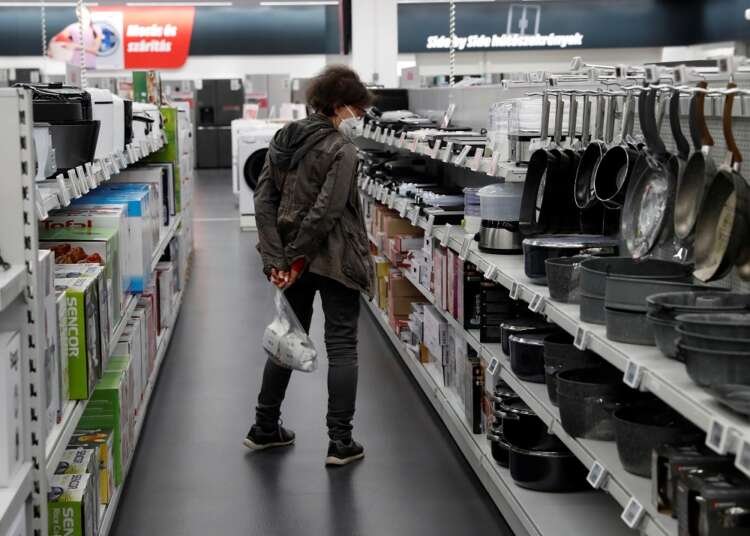Central Europe’s manufacturing strain reaches Hungary


By Jason Hovet and Gergely Szakacs
(Reuters) -Hungary’s manufacturing activity shrank for the first time in 17 months in September, a survey showed on Monday, and output kept falling in the Czech Republic and Poland as high inflation and soaring energy costs sharpened their impact in central Europe.
Hungary joined its central European peers in signalling a manufacturing contraction while Europe’s energy crisis and decades-high inflation hit consumers and businesses alike.
The country’s seasonally-adjusted Purchasing Managers’ Index (PMI) fell sharply to 49.6 in September, below the 50 level dividing growth from contraction, the Hungarian Association of Logistics, Purchasing and Inventory Management (MLBKT) said.
Under a different methodology, the Polish S&P Global Polish Manufacturing PMI slowed its rate of contraction, edging up to 43.0 in September, but remained in contraction territory for a fifth month.
Czech S&P Global PMI was at its lowest since May 2020, at 44.7.
The surveys point to a choppy landing for central Europe’s economies ahead with recession risks growing.
“A growth slowdown or even decline in manufacturing is a trend seen in the majority of European economies,” said Radomir Jac, chief economist at Generali Investments CEE.
“The deterioration in manufacturing is unfortunately meeting expectations that in the second half of the year the Czech economy will cool and can go through a technical recession.”
With economies hurting, central banks in the region are also seeking to end the sharp interest rate hike cycles of the past year even as price pressures still bubble. Eyes are on Poland this week after the Czechs held rates last week and Hungary delivered what may be a final hike.
OUTPUT DECLINES
In Hungary, where the forint is at record lows, production volumes eased below the 50-point mark in the PMI survey.
Before September, Hungary’s PMI had indicated continued growth, helped by bright spots. Car production, for example, has grown around the region as supply chain snags ease and carmakers work through deep backlogs.
“August industrial output data (due this week)… may show a rebound as big carmakers, including Audi and Mercedes, have not reported any issues with production,” said Gergely Suppan, from Hungarian Bankholding, adding September data could also surprise on the upside.
Output contractions deepened in Poland and the Czech Republic, and new orders fell further.
The Polish and Czechs surveys showed input price inflation picking up on rising energy costs. European Union leaders are seeking to contain a price surge following Russia’s invasion of Ukraine and as Russian gas flows to the bloc fall.
The energy jump is adding to inflation – which reached over 17% in Poland in September – and hitting consumers’ wallets harder.
“Entrepreneurs see the weakening consumption of customers,” said Sebastian Sajnog, an analyst from the Polish Economic Institute. “Rising costs remain a significant problem that hinders the (manufacturing) sector.”
(Reporting by Jason Hovet in Prague, Krisztina Than and Gergely Szakacs in Budapest, and Alan Charlish and Anna Wlodarczak-Semczuk in Warsaw, editing by Ed Osmond)
Inflation is the rate at which the general level of prices for goods and services rises, eroding purchasing power. It is typically measured annually.
A recession is a significant decline in economic activity across the economy, lasting more than a few months, typically visible in GDP, income, employment, and retail sales.
Explore more articles in the Top Stories category











